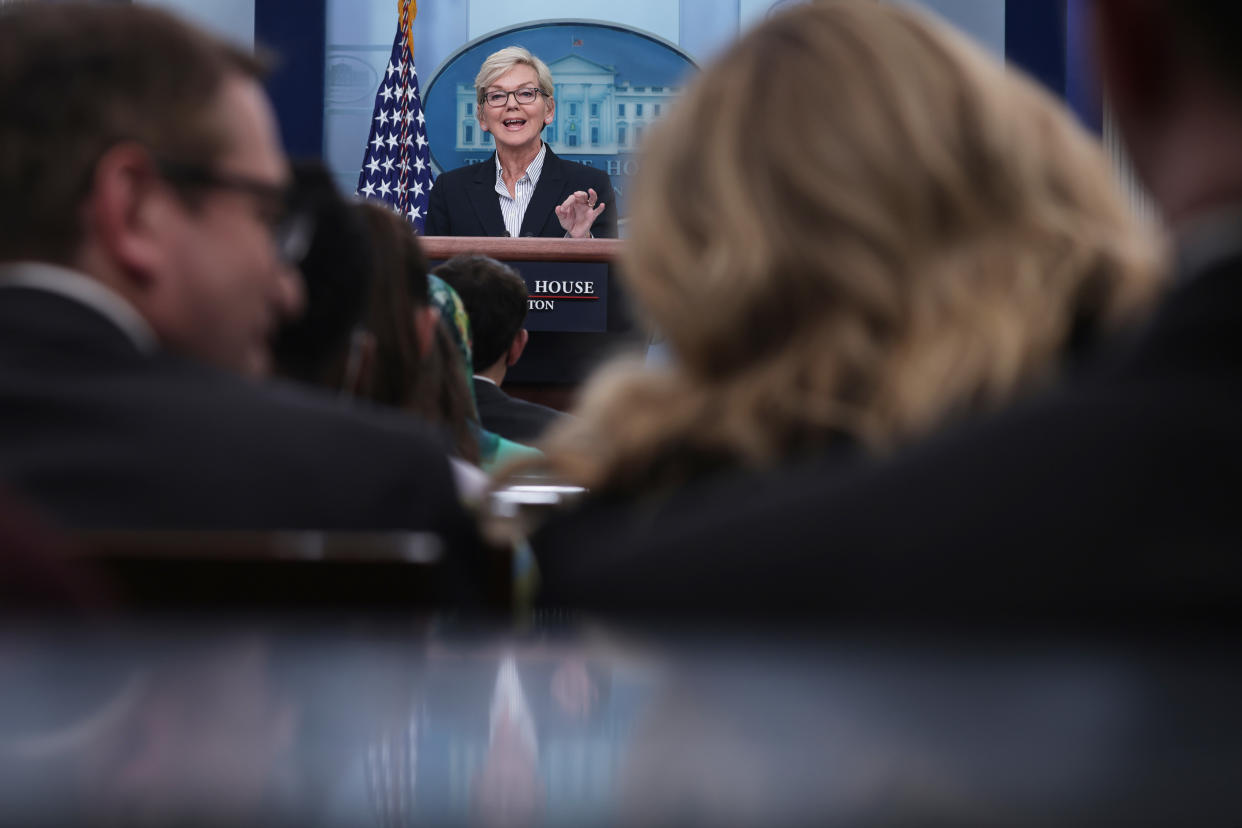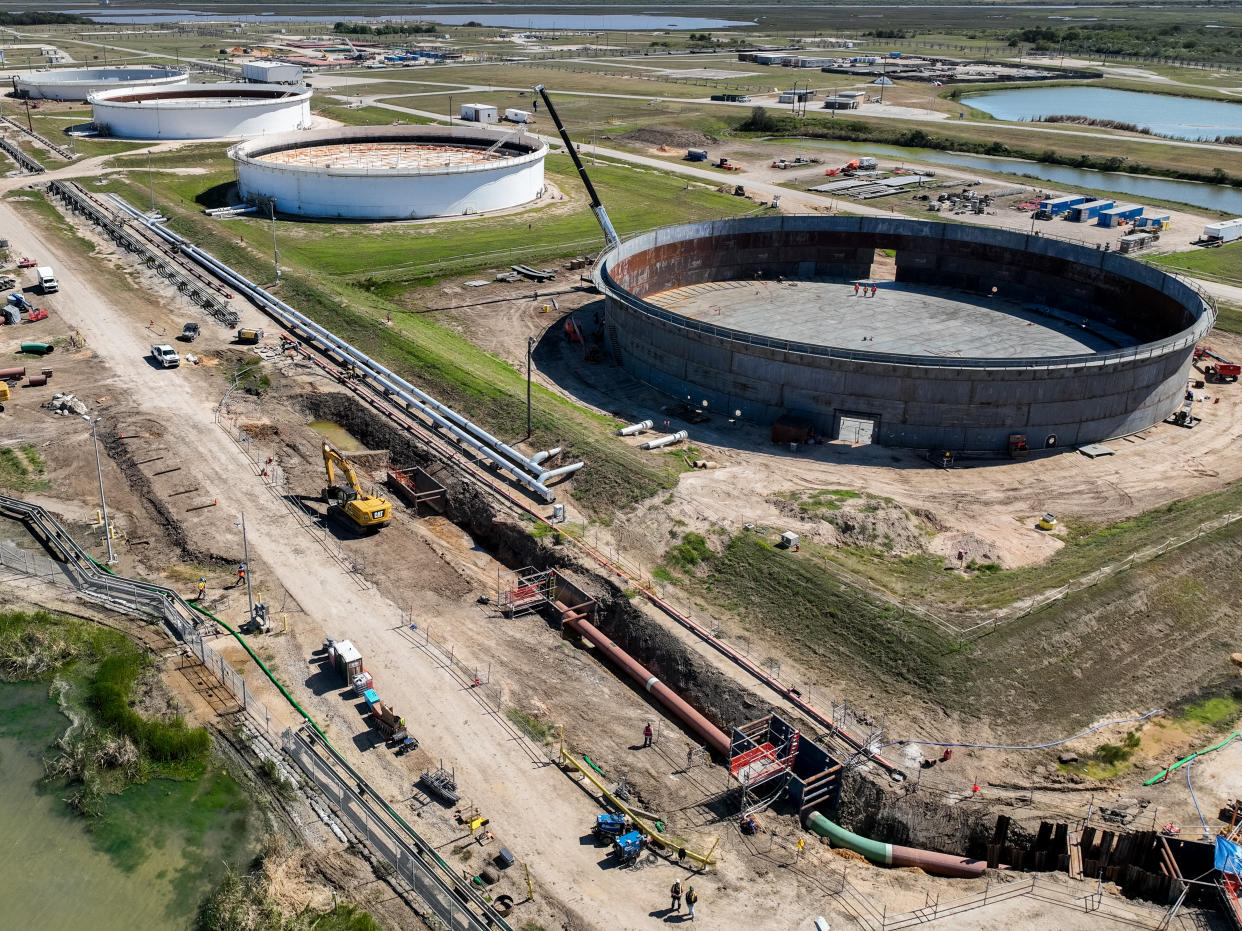How two 2015 laws are draining America’s energy backstop—and slowing efforts to refill it
The Biden administration’s effort to replenish America’s crucial energy reserve was dealt a setback this week with the news that existing laws will force the administration — despite its objections — to sell 26 million additional barrels out of the reserve in coming months.
These Congressionally-mandated sales not only will bring the level of the Strategic Petroleum Reserve (SPR) to new lows not seen since the 1980s, they will also put a hold on the ongoing purchase efforts to refill it — at least for now, a senior Department of Energy official told Yahoo Finance in an interview Friday.
“We've mapped out those windows [for replenishment] and of course we'll continue to evaluate them, but we're kind of stuck right now,” the official said.
“It's all based on operational capacity,” the official said, noting that the mandates from the Bipartisan Budget Act of 2015 and the Fixing America’s Surface Transportation Act offer limited flexibility during fiscal year 2023. As a result, the administration plans to make those required moves first — from April 1 through June 30 of this year — before any replenishment.
“We need to do this, so we're not going to do replenishment in those windows,” the official added.
The SPR currently sits at about 371 million barrels, already its lowest level in decades. The administration hopes to add back 60 million barrels to the reserve as a first step and is publicly aiming for a repurchase price of around $70/barrel.
And even before this week's news, energy officials had telegraphed that replenishment efforts would be a long process. In May 2022, soon after oil sales started from the SPR — following Russia's invasion of Ukraine — the department announced a call for bids to eventually restock the reserve and projected a delivery window to begin "likely after FY 2023." The 2023 fiscal year ends Sept. 30.
‘Most of the pressure has come to the upside’
But hopes were raised for quicker action about four weeks ago when Energy Secretary Jennifer Granholm expressed her optimism about refilling the SPR in a White House appearance. She even teased that an announcement on the plan around those 60 million barrels goal was in the offing.
“It’s going to happen very soon,” she said to a room full of reporters.
Then, in the weeks since, the details of the congressional mandate as well as forecasts for higher global oil prices have offered a challenge to the refilling efforts.
“Most of the pressure has come to the upside lately,” Bob Iaccino, Path Trading Partners co-founder, said in a Yahoo Finance Live interview this week. He said higher prices and the mandated sales are “going to put the president and the SPR specifically in a pretty bad spot going forward.”

Stephen Schork, principal at the Schork Group, added recently in his own interview that the market narrative of prices going up is winning out at the moment. As a result, “the White House now has painted itself into a corner,” he said.
Schork added that the Biden administration's commitment to buy at $70 a barrel is “a de facto floor in the market at this point” and likely a recipe for higher prices in the months ahead when combined with other factors like China's reopening.
In fact, the strong chance of higher crude prices was part of the administration's motivation for doing these congressionally-mandated sales sooner, the official added during Friday's interview. Revenue from these sales will go to deficit reduction efforts.
“There's a process as part of this — both the logistics of the actual sale, plus the logistics of getting the money to Treasury — so we tried to time it the best we could...to get the best value for taxpayers, which is typically in the spring,” the official said.
This week's notice of sale from the Energy Department also included new details of a three-part strategy for eventually refilling the reserve that will focus on finding “the best deal for taxpayers by aiming to repurchase crude at a lower price than it was sold for, while providing certainty to the industry in a way that helps encourage near-term production.”
According to the department, the 2022 sales of the heavier base crude oil needed for the salt caverns of the SPR were made at an average price of $96 per barrel. The Biden administration sold more than 180 million barrels over the year as an emergency release in response to the invasion of Ukraine.
The replenishment challenges also come after two House GOP votes in January focused on Biden’s approach to the energy reserve. One bill aimed to limit the administration’s powers when tapping the reserve by linking releases to U.S. domestic oil production, but it is all but certain to be ignored by the Senate.

Biden officials did get some breathing room for the years ahead in the omnibus budget package that was passed in December. It included a provision to cancel some congressional mandates from 2024 through 2027, but other mandates remain in place through 2031.
In her January remarks, Granholm praised the omnibus. She also noted her department currently has about $4.5 billion at its disposal for replenishment efforts.
“I think, in the end, because of the way this has been managed, people will be pleased to see the savings to taxpayers," she said.
Ben Werschkul is Washington correspondent for Yahoo Finance.
Click here for politics news related to business and money
Read the latest financial and business news from Yahoo Finance
Download the Yahoo Finance app for Apple or Android
Follow Yahoo Finance on Twitter, Facebook, Instagram, Flipboard, LinkedIn, and YouTube
